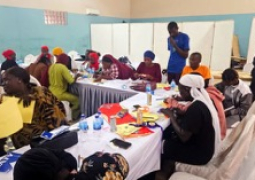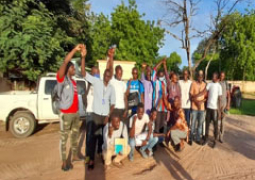
Starting as a lethal concoction of cannabis, fentanyl, tramadol, formaldehyde and ground human bones, Kush has emerged as a potent threat to public health, security, and social stability.
The Gambian society, due to porous borders and weak law enforcement, allow smugglers to import the deadly drug. The emergence of Kush drug has significantly caused a lot of havoc among the youth in The Gambia.
The composition of Kush has been said to be dangerous for consumption. According to the Anglia Ruskin University, Kush entails the blending of cannabis with potent opioids like fentanyl and tramadol.
This lethal combination induces a range of effects, from relaxation to altered consciousness to dangerous levels of adrenaline and sleeplessness.
The inclusion of formaldehyde and ground human bones adds to its toxicity, exacerbating the risks associated with its use.
Gambian youth have become intoxicated with the drug, especially those in Durumakolong the most dangerous area in Brikama town.
Some of the youth blamed the society where they grew up. According to them, they could not get someone who could motivate them to avoid taking such hard drugs. Some dropped out of school with little or no skills to survive, and the only thing they can do is sell drugs or other things just to get a dose.
The proliferation of Kush has sparked a public health crisis across West Africa, with users experiencing severe health consequences, including brain disorders, self-harm, and addiction.
The drug’s addictive nature fuels a cycle of dependence, often driving individuals towards prostitution and other criminal activities to finance their addiction.
Vulnerable youth are disproportionately affected by Kush abuse, lured by its potent effects and easy availability.
As addiction takes hold, these individuals become trapped in a web of criminality, jeopardising national security and social cohesion.
Kush’s public health threat extends beyond The Gambia, with regional stability and global health implications.
Its composition, which includes potent opioids and toxic substances, heightens the risk of overdose and long-term health complications.
Moreover, the transnational nature of its trafficking highlights the need for coordinated efforts at the regional and international levels to combat its spread.
The abuse and trafficking of Kush represents a grave challenge confronting The Gambia and West Africa at large.
Urgent action is needed to strengthen border control, enhance law enforcement efforts, and expand access to prevention and treatment services.
Addressing the Kush crisis requires a comprehensive approach that addresses its root causes, tackles its transnational dimensions, and safeguards the health and well-being of communities across the region.




